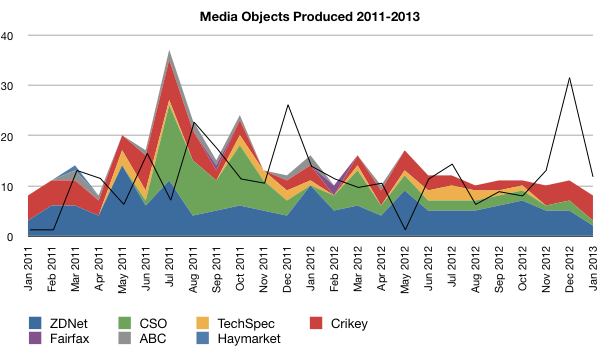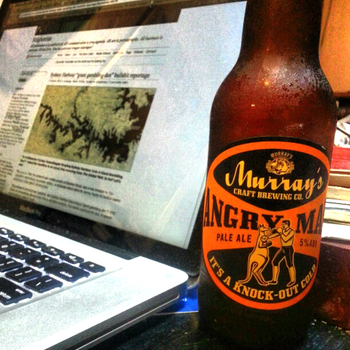 It’s exactly one week until I’m meant to be in Canberra for Linux.conf.au 2013, but ZDNet Australia and TechRepublic don’t have the budget to send me. So who wants to pay for it?
It’s exactly one week until I’m meant to be in Canberra for Linux.conf.au 2013, but ZDNet Australia and TechRepublic don’t have the budget to send me. So who wants to pay for it?
Last year I wrote six articles and produced four daily podcasts. I don’t think it’s too immodest of me to say that they were well-received, and that I should cover this year’s event as well.
So, who’s going to cough up the dosh? I’ll need to have the air fares and accommodation covered, along with various minor expenses, and of course I’ll need to be paid as well. Much as I support and respect the free and open source software (FOSS) community, this media stuff is what I do to pay my bills.
I reckon there’s three ways we can do this.
- Another media company pays me to cover the event as a freelancer in the traditional way.
- I cover the event independently. I could perhaps create the Corrupted Nerds masthead for this (I wrote about that on Friday), though that seems better as the title for a security-related thing. I’d need to arrange advertisers and sponsors in the usual way, and time is short.
- I cover the event independently, but crowdsource the funding through Pozible or someone. This is supposed to be the future, so perhaps we could try it?
How much are we looking at? About $5000.
A flight from Sydney to Canberra on Sunday and back a few days after the conference ends — because I need to finish making media objects first, then fly, and if I’m in Canberra I’d do some other things while I was there (about $240). Transport to and from the airports (about $150) and to and from the conference venues ($250). Accommodation for the duration of the conference, ‘cos I’d cover the rest out of my own budget (between $1100 and $1400). Call it $2000.
As for what I’m paid, well, that’s flexible. Last year the podcasts and articles came to just under $3000 including GST. While that may sound relative high for one week of work, bear in mind that I was up at 5am and working until after midnight most days, and working into the weekend. I think I pulled an all-nighter in there somewhere. So you’re pretty much rooted for days afterwards. And freelancers provide their own equipment, and in theory things like paying for future holidays (what?), insurance (come again?) and so on.
Obviously we’d have to decide the exact format of the media objects — whether they’re written stories or live blogs or podcasts or photographs or whatever, or of course a mix thereof. The conference organisers will presumably post the raw recordings of the presentations, but the journalistic approach is to seek out the newsworthy stuff, to analyse and comment upon whats being presented and how it’s being received.
So all up, it’s about $5000. My task for Monday morning is to decide which method to focus on. Which do you think might be best?
 Last week, reportedly, Twitter spent $100 million buying Bluefin Labs, a media analytics company that claims to be able to provide details semantic analysis of Twitter chatter about TV programs.
Last week, reportedly, Twitter spent $100 million buying Bluefin Labs, a media analytics company that claims to be able to provide details semantic analysis of Twitter chatter about TV programs.


